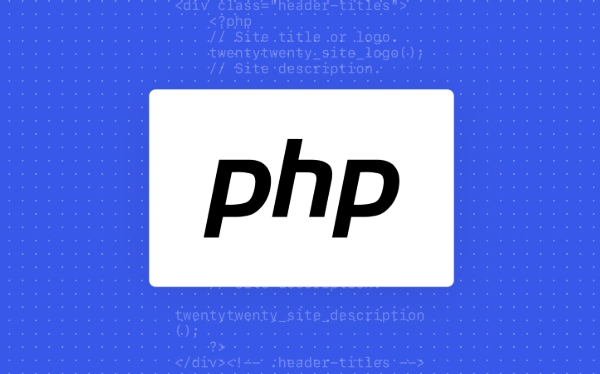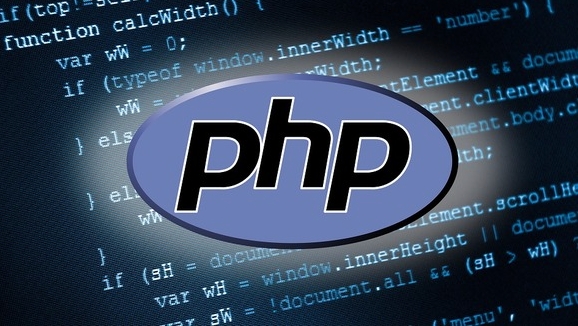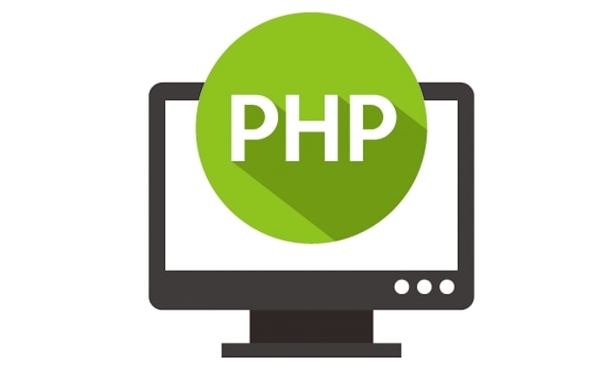For beginners, Laravel is recommended to choose as the PHP introduction framework; because Laravel has complete documents and active communities, it comes with common functions such as database migration and authentication, which can help beginners focus on business logic; the official documents are clear and it is easy to find answers when encountering problems; the Blade template engine is simple and easy to understand, suitable for understanding the MVC architecture; the learning path is recommended: first run through the official installation guide to ensure that the environment is fine; write a simple blog system; join user login and permission control; use Eloquent ORM to understand model relationships; then gradually get in touch with advanced functions such as middleware, event monitoring, and task scheduling.

If you are new to PHP and want to choose a suitable framework to get started, Laravel is the most recommended choice at present. It's not the lightest, but it's best for beginners in terms of a comprehensive learning curve, community support and development experience.

Why choose Laravel?
Laravel has been a "star" in the PHP framework in recent years. It has complete documentation, active community, and comes with many commonly used functions (such as database migration, authentication, queue tasks, etc.), which can allow you to focus more on business logic rather than underlying details.

The biggest benefit for beginners is:
- The official documentation is very well written, with clear examples for almost every feature
- It's easy to find the answer on Stack Overflow or GitHub when you encounter problems
- The Blade template engine is simple and easy to understand, suitable for those who are just starting out to understand the MVC architecture
Of course, you can also consider Symfony or CodeIgniter, but they are either too complex or too old and have less learning resources than Laravel.

Problems that beginners often encounter
When you first use the frame, many people will get stuck in the following places:
- Don't understand the "auto loading" mechanism, resulting in the class being unable to be found
- Not familiar with MVC architecture, write all the logic in one file
- There is an error in routing configuration, but I don't know how to check the page
- The database connection failed, but I didn't read the logs and just guessed
It is recommended to start practicing with the official Homestead environment or Laravel Sail to avoid tossing the server configuration at the beginning. First run through the basic process: create a controller, define a route, connect to a database, and display the page. After all these can be operated stably, go deeper.
Learning path suggestions
If you decide to get started with Laravel, you can learn in this order:
- First run through the official installation guide to ensure that the environment is fine
- Write a simple blog system that contains article lists, details pages, additions and editing functions
- Join the user to log in to the system and try permission control
- Use Eloquent ORM to manipulate data and understand model relationships
- Contact middleware, event monitoring, task scheduling and other advanced functions
Don’t rush to pursue “advanced skills” during the process, and first open up the basic process. It doesn’t matter if you don’t understand many concepts at the beginning, but you will naturally understand them by writing a few more small projects.
Basically that's it. Don’t think about it in one step. It’s more important to write it out by hand first than anything else.
The above is the detailed content of what is the best php framework for beginners. For more information, please follow other related articles on the PHP Chinese website!

Hot AI Tools

Undress AI Tool
Undress images for free

Undresser.AI Undress
AI-powered app for creating realistic nude photos

AI Clothes Remover
Online AI tool for removing clothes from photos.

Clothoff.io
AI clothes remover

Video Face Swap
Swap faces in any video effortlessly with our completely free AI face swap tool!

Hot Article

Hot Tools

Notepad++7.3.1
Easy-to-use and free code editor

SublimeText3 Chinese version
Chinese version, very easy to use

Zend Studio 13.0.1
Powerful PHP integrated development environment

Dreamweaver CS6
Visual web development tools

SublimeText3 Mac version
God-level code editing software (SublimeText3)
 PHP Variable Scope Explained
Jul 17, 2025 am 04:16 AM
PHP Variable Scope Explained
Jul 17, 2025 am 04:16 AM
Common problems and solutions for PHP variable scope include: 1. The global variable cannot be accessed within the function, and it needs to be passed in using the global keyword or parameter; 2. The static variable is declared with static, and it is only initialized once and the value is maintained between multiple calls; 3. Hyperglobal variables such as $_GET and $_POST can be used directly in any scope, but you need to pay attention to safe filtering; 4. Anonymous functions need to introduce parent scope variables through the use keyword, and when modifying external variables, you need to pass a reference. Mastering these rules can help avoid errors and improve code stability.
 How to handle File Uploads securely in PHP?
Jul 08, 2025 am 02:37 AM
How to handle File Uploads securely in PHP?
Jul 08, 2025 am 02:37 AM
To safely handle PHP file uploads, you need to verify the source and type, control the file name and path, set server restrictions, and process media files twice. 1. Verify the upload source to prevent CSRF through token and detect the real MIME type through finfo_file using whitelist control; 2. Rename the file to a random string and determine the extension to store it in a non-Web directory according to the detection type; 3. PHP configuration limits the upload size and temporary directory Nginx/Apache prohibits access to the upload directory; 4. The GD library resaves the pictures to clear potential malicious data.
 Commenting Out Code in PHP
Jul 18, 2025 am 04:57 AM
Commenting Out Code in PHP
Jul 18, 2025 am 04:57 AM
There are three common methods for PHP comment code: 1. Use // or # to block one line of code, and it is recommended to use //; 2. Use /.../ to wrap code blocks with multiple lines, which cannot be nested but can be crossed; 3. Combination skills comments such as using /if(){}/ to control logic blocks, or to improve efficiency with editor shortcut keys, you should pay attention to closing symbols and avoid nesting when using them.
 How Do Generators Work in PHP?
Jul 11, 2025 am 03:12 AM
How Do Generators Work in PHP?
Jul 11, 2025 am 03:12 AM
AgeneratorinPHPisamemory-efficientwaytoiterateoverlargedatasetsbyyieldingvaluesoneatatimeinsteadofreturningthemallatonce.1.Generatorsusetheyieldkeywordtoproducevaluesondemand,reducingmemoryusage.2.Theyareusefulforhandlingbigloops,readinglargefiles,or
 Tips for Writing PHP Comments
Jul 18, 2025 am 04:51 AM
Tips for Writing PHP Comments
Jul 18, 2025 am 04:51 AM
The key to writing PHP comments is to clarify the purpose and specifications. Comments should explain "why" rather than "what was done", avoiding redundancy or too simplicity. 1. Use a unified format, such as docblock (/*/) for class and method descriptions to improve readability and tool compatibility; 2. Emphasize the reasons behind the logic, such as why JS jumps need to be output manually; 3. Add an overview description before complex code, describe the process in steps, and help understand the overall idea; 4. Use TODO and FIXME rationally to mark to-do items and problems to facilitate subsequent tracking and collaboration. Good annotations can reduce communication costs and improve code maintenance efficiency.
 Quick PHP Installation Tutorial
Jul 18, 2025 am 04:52 AM
Quick PHP Installation Tutorial
Jul 18, 2025 am 04:52 AM
ToinstallPHPquickly,useXAMPPonWindowsorHomebrewonmacOS.1.OnWindows,downloadandinstallXAMPP,selectcomponents,startApache,andplacefilesinhtdocs.2.Alternatively,manuallyinstallPHPfromphp.netandsetupaserverlikeApache.3.OnmacOS,installHomebrew,thenrun'bre
 How to access a character in a string by index in PHP
Jul 12, 2025 am 03:15 AM
How to access a character in a string by index in PHP
Jul 12, 2025 am 03:15 AM
In PHP, you can use square brackets or curly braces to obtain string specific index characters, but square brackets are recommended; the index starts from 0, and the access outside the range returns a null value and cannot be assigned a value; mb_substr is required to handle multi-byte characters. For example: $str="hello";echo$str[0]; output h; and Chinese characters such as mb_substr($str,1,1) need to obtain the correct result; in actual applications, the length of the string should be checked before looping, dynamic strings need to be verified for validity, and multilingual projects recommend using multi-byte security functions uniformly.
 Learning PHP: A Beginner's Guide
Jul 18, 2025 am 04:54 AM
Learning PHP: A Beginner's Guide
Jul 18, 2025 am 04:54 AM
TolearnPHPeffectively,startbysettingupalocalserverenvironmentusingtoolslikeXAMPPandacodeeditorlikeVSCode.1)InstallXAMPPforApache,MySQL,andPHP.2)Useacodeeditorforsyntaxsupport.3)TestyoursetupwithasimplePHPfile.Next,learnPHPbasicsincludingvariables,ech






